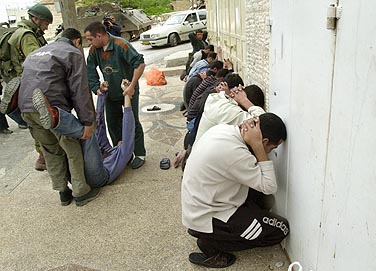My group went to the office of Zochrot today to hear a lecture. Zochrot is an Israeli organization which aims to educate the Jewish Israeli population about the Nakba—the Palestinian catastrophe of 1948, the forced dispossession of nearly 80% of Palestinians. Eitan, the man who spoke with our group, commented that Jewish Israelis know virtually nothing about the Nakba. They learn a very simple and particular narrative in which they were a besieged minority who rose from the ashes of the Holocaust to crush the hostile Arabs who attacked them. Eitan said that the Nakba is not only vital to recognize as the narrative of the Other, but also it is a central part of Israeli history, a central part which is wholly omitted from the national narrative. Ilan Pappe, Israeli professor and historian, has asserted a similar message, asserting that Israelis must acknowledge the realities of 1948 if they wish to understand the current situation and think through ways of moving forward.
I sat next to Eitan, and as I listened to him speak, the power of his message and the conviction of his voice moved me. He spoke as an Israeli who is concerned for the future of his nation and personal community, talking a bit about his own children and the dilemma of compulsory military service. But more importantly he spoke as a human being who believes wholly in justice and equality. He spoke of Palestinians as human beings and condemned the racism of a so called Jewish, democratic state. How is it that an Israeli who speaks of a Palestinian with compassion and understanding strikes me as so incredible? There should be nothing brave about Eitan. There should be nothing unique about his work or views, and yet his honesty and willingness to engage in reality, to fight the indoctrination of a lifetime and live his convictions so that he might demand social justice of others moved me more than I can say. Perhaps I am simply tired right now, but in this grain of hope, I see more despair that he and his work should be so striking, so uncommon.
Friday, July 18, 2008
Subscribe to:
Post Comments (Atom)








No comments:
Post a Comment